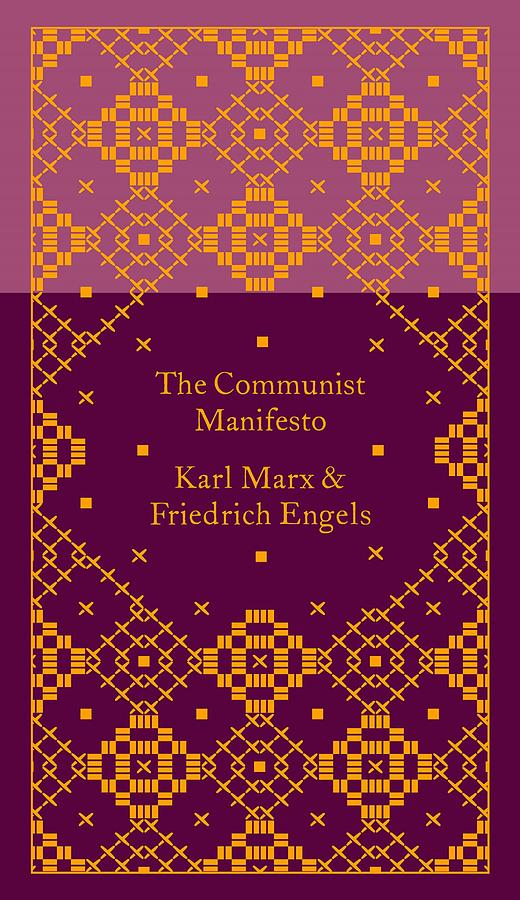內容簡介
內容簡介 今天要如何解讀《宣言》? 伯曼(Marshall Berman)說:《宣言》是「第一部偉大的現代主義作品」(the first great modernist work of art) 馬克思與恩格斯於1848年2月出版《宣言》,距今已超過了一個半世紀。《宣言》是一個重要的政治文獻及歷史文獻…同時也是一部理論作品,從歷史唯物主義的觀點陳述階級鬥爭的理念,指出人類歷史就是一部階級鬥爭史。在此基礎上,《宣言》分析現代社會(或者稱之為「資產階級社會」或「布爾喬亞社會」)的特徵以及來龍去脈。就這一方面而言,《宣言》是一部分析現代性的作品,而它分析現代性主要是從階級的角度出發,資產階級乃現代社會及現代世界的創建者和主角。要理解現代社會(或現代性)必須理解資產階級;而要理解現代社會的未來則不僅要理解資產階級,也要理解無產階級。 ──黃瑞祺(導讀節錄) 本文短介出自五南圖書《共產黨宣言》
作者介紹
作者介紹 Karl Marx was born in Trier, Germany and studied law at Bonn and Berlin. In 1848, with Freidrich Engels, he finalizedThe Communist Manifesto. He settled in London, where he studied economics and wrote the first volume of his major work,Das Kapital (1867, two further volumes were added in 1884 and 1894). He is buried in Highgate Cemetery, London.Friedrich Engels was born in Westphalia in 1820, the son of a textile manufacturer. After military training in Berlin, Engels already a convert to communism, went to Manchester in 1842 to represent the family firm. A relationship with a mill-hand, Mary Bums, and friendship with local Owenites and Chartists helped to inspire his famous early work, The Condition of the Working Classin England in 1844. His collaboration with Marx began in 1844 and in 1847 he composed the first drafts of theCommunist Manifesto. After playing an active part in the German revolutions, Engels returned to work in Manchester until 1870, when he moved to London. He not only helped Marx financially, but reinforced their shared position through his own expositions of the new theory. After Marx�s death, he prepared the unfinished volumes of Capital for publication. He died in London in 1895.Gareth Stedman Jones is Professor of Political Science in the History Faculty of Cambridge University and a Fellow of King's College, Cambridge. He is also a Director of the Centre of History and Economics at Cambridge. His publications includeOutcast London and Languages of Class.Karl Marx was born in Trier, Germany and studied law at Bonn and Berlin. In 1848, with Freidrich Engels, he finalized The Communist Manifesto. He settled in London, where he studied economics and wrote the first volume of his major work, Das Kapital (1867, two further volumes were added in 1884 and 1894). He is buried in Highgate Cemetery, London.Friedrich Engels was born in Westphalia in 1820, the son of a textile manufacturer. After military training in Berlin, Engels already a convert to communism, went to Manchester in 1842 to represent the family firm. A relationship with a mill-hand, Mary Bums, and friendship with local Owenites and Chartists helped to inspire his famous early work, The Condition of the Working Class in England in 1844. His collaboration with Marx began in 1844 and in 1847 he composed the first drafts of the Communist Manifesto. After playing an active part in the German revolutions, Engels returned to work in Manchester until 1870, when he moved to London. He not only helped Marx financially, but reinforced their shared position through his own expositions of the new theory. After Marx’s death, he prepared the unfinished volumes of Capital for publication. He died in London in 1895.Gareth Stedman Jones is Professor of Political Science in the History Faculty of Cambridge University and a Fellow of King's College, Cambridge. He is also a Director of the Centre of History and Economics at Cambridge. His publications include Outcast London and Languages of Class.
